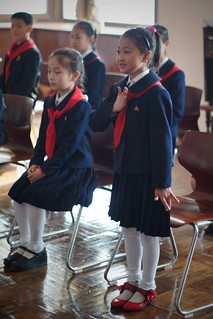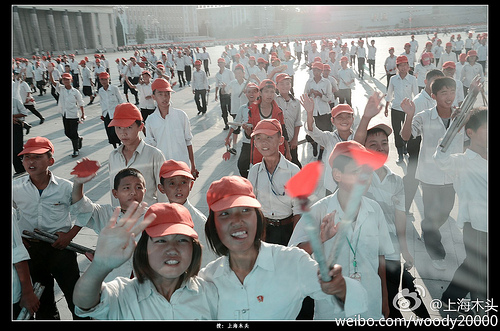 North Korean defectors who are adjusting to life in South Korea often find themselves overwhelmed by the education-obsessed culture of their southern neighbors. As many South Korean classmates were enjoying their winter breaks in January, a volunteer-run project by a non-governmental organization, the Citizens’ Alliance for North Korean Human Rights, headed a two-week academic camp that aimed to help North Korean teenagers adjust to the life of the south.
North Korean defectors who are adjusting to life in South Korea often find themselves overwhelmed by the education-obsessed culture of their southern neighbors. As many South Korean classmates were enjoying their winter breaks in January, a volunteer-run project by a non-governmental organization, the Citizens’ Alliance for North Korean Human Rights, headed a two-week academic camp that aimed to help North Korean teenagers adjust to the life of the south.
The Hangyreh Seasonal School, a privately funded program, is staffed by volunteers who were defectors from the North many years ago. These individuals spend their winter breaks teaching teenagers with similar backgrounds and life experiences. The volunteer teachers spoke of their adjustment period and discussed issues ranging from personal identity to college admissions, and even to life lessons such as dating. The course, according to a volunteer instructor, “provid[ed] a good chance for students to gain confidence and relax with others from a similar background.” Having instructors who shared their own personal stories allowed groups of North Korean defectors establish an affinity towards and connection with their new homes.
South Korea currently has an adjustment policy for North Korean defectors. Adult defectors are required to spend three months at Hanowan, a government-financed center located 70 miles south of Seoul, that was established to help defectors learn their rights under South Korean law, and become acquainted with South Korean department stores, banks, and subways. Driving lessons are also offered. According to the Washington Post, teenage defectors spend time ranging from two months to two years at Hangyoreh Middle-High School, a remedial boarding school designed to acclimate North Korean youth to the public education system of South Korea. Daily lessons include basic reading and math.
These adjustment centers make a world of difference, and many defectors are shocked to find that their previous education in North Korea is nearly useless. Gwak Jung-moon, the principal of the remedial boarding school, remarked that the “education in North Korea is useless for life in this country.” According to defectors, the North Korean education system, which inculcates state propaganda and ideology espoused by the established regime, was devastated in the 1990s after a national famine deprived schools of adequate food rations and school supplies. According to the New York Times, many North Korean schools still lack these resources today.
In September 2012, North Korea announced an educational overhaul by adding an additional year of free education for schoolchildren at their second session of Parliament. Compulsory education would now extend to 12 years from the previous 11 years, and promises were made to give priority to schools on the distribution of food and fuel rations. North Korean Parliament also announced that “unruly mobilization of students” for activities outside school would end in an effort to refocus the state’s education towards a more knowledge-based curriculum that is in line with the “trend of the world.”
Creative Commons Love: Joseph A Ferris III on Flickr.com





















